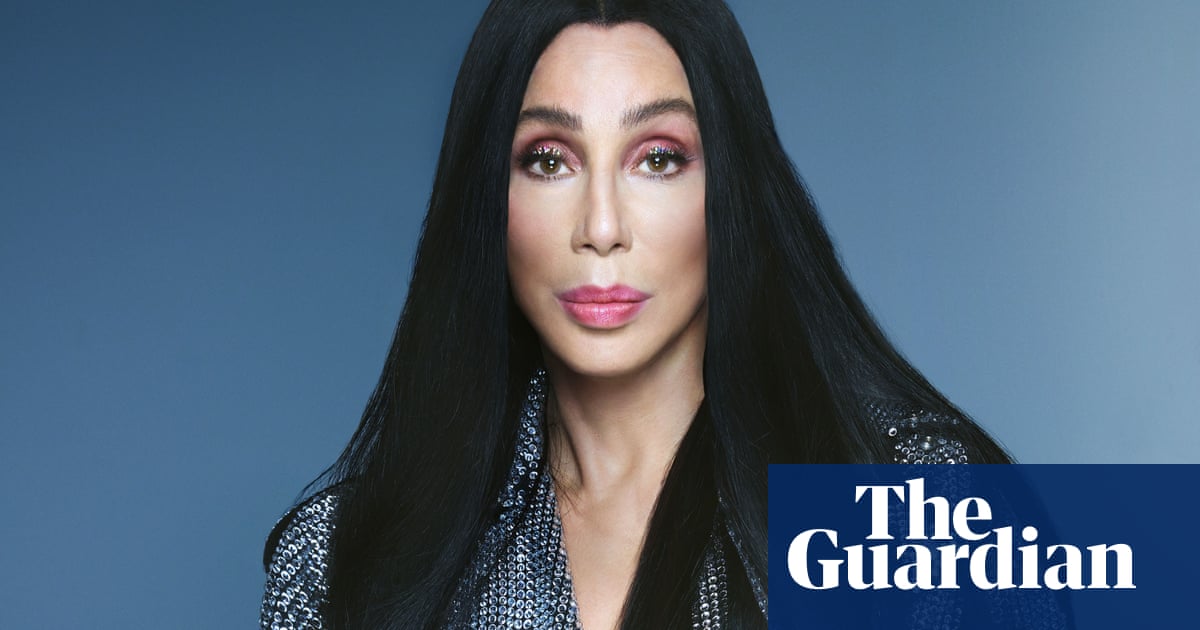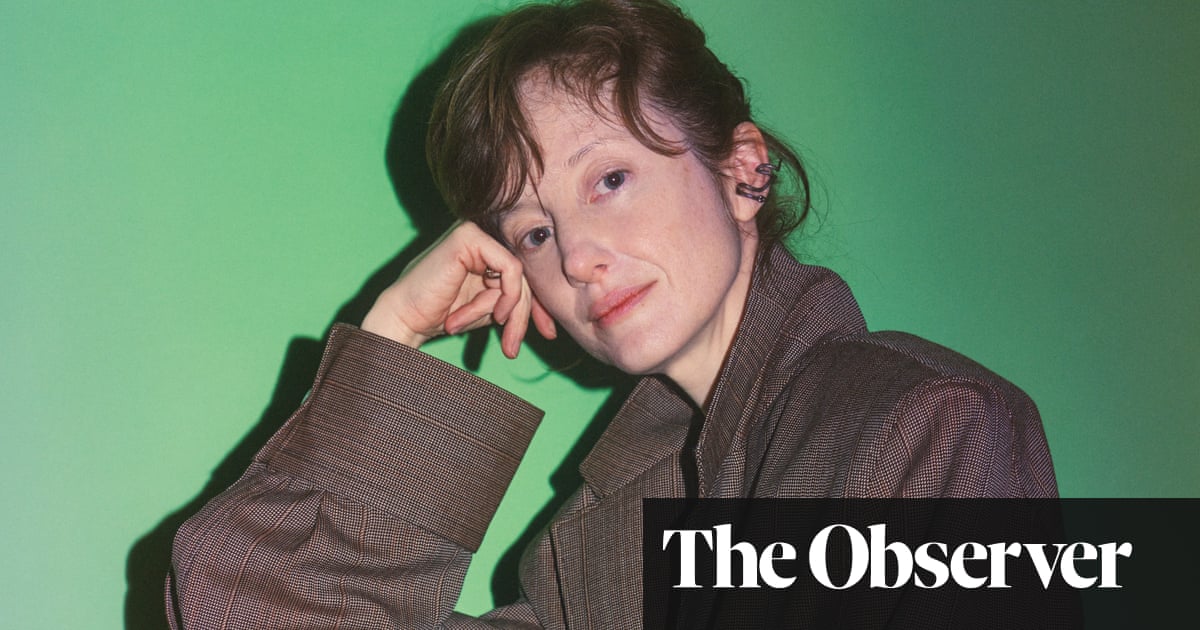
Interviewing Shayne Oliver is a conversational rollercoaster. We hurtle from cult 90s guitar bands to Arthur Jafa, from the problem with political correctness to the pressure on creatives, from Kanye West to Vin Diesel, with little warning of which thrill or spill is next. “I’m such a scatterbrain,” he says at the end of our call. “I’m sorry.”
But Oliver is far from a scatterbrain. He is best known as a fashion designer, the former vogue-dancer who founded the critically adored label Hood By Air, or HBA, in 2006. However, he is no longer limiting himself to clothes. Oliver is moving into music, having formed Anonymous Club – a “creative studio” focused on young talent that began as a series of parties. The studio’s debut release is Screensavers Vol 1, a compilation album based on Oliver’s demos, executive produced by Yves Tumor.
It’s a mix of dark noisecore, grungy sounds, bolshie hip-hop and dancefloor-ready tracks. It features acts such as Izzy, the model and musician from hardcore duo Dead Dogs; Sabrina Fuentes of Pretty Sick, the rock band she founded at the age of 13; and Tama Gucci, model, singer and mainstay of Miami’s queer underground. Oliver also stars – at least in a persona called Leech; for which he is painted white, with breasts, and wears only a wig and Nike Air Jordans.
“I would call it .. comedy,” he says, deadpan. Oliver is ambivalent about the sudden rush to recognise previously ignored creatives of colour, as representation became a hot button issue in culture over the past year. “Right now, the idea of Black popularity, I wouldn’t say it’s bad, but it’s a little vulgar, you know? I was like, ‘How can I do interviews without representing a Black face?’ That’s how it started.” Hence the white makeup? “Exactly. I feel like I want to save my Blackness for my creations.”
One of Oliver’s missions with Anonymous Club is to show that you don’t have to be a superstar to be successful. “Alternative celebrity is being wasted in this generation because everyone wants to be highly popular,” he says, using Vin Diesel as an example. “He had been a queen of alternative classic cinema, like XXX, then went on to carve out a huge part of pop culture [in the Fast & Furious films] based on that.”
Oliver is also keen to create a platform for queer people outside what he sees as an increasingly academic culture. He feels uneasy about political correctness shutting out, as he sees it, those without an Ivy League education. “You can be in an evolutionary queer conversation because your friends are very well adapted to the conversations around queer rights. But what if you’re way more queer than anyone in your group? What if there is no one there yet to understand, ‘Where am I sleeping tonight?’”
This perspective comes from formative experiences. An only child born in Minnesota, he was brought up between the US and his mother’s native Trinidad. In 2000, when Oliver was 12, they settled in New York and he attended Harvey Milk High, a school for LGBT students, while getting an education in the ballroom scene – a world familiar to anyone who has seen the 1990 documentary Paris Is Burning, or the Ryan Murphy series Pose.
It was here that he saw some tough realities. “I have been around so many trans women who went through the system, and had to go through shelters to get hormones, and it wasn’t glamorous,” he says. “I’m not saying every transition has to be brutal. I’m just saying that those women getting to that level was extreme. I don’t agree that you can facilitate and idealise the philosophy of queerness and then it’s all OK. It’s not OK.”
Oliver started walking in the Butch Queen Vogue Fem category at balls as a way to “imitate” the inspirational women around him. He considered transitioning himself. “But I just had different avenues I wanted to go down. And transitioning is really specific. When you don’t have the resources, transitioning is really hard. I had to choose how much I could dedicate to that and/or being successful.”
In 2006, at the age of 18, Oliver launched HBA with his friend Raul Lopez. By this point, he had graduated from Harvey Milk and dropped out of the highly rated Fashion Institute of Technology. He was immersed in New York nightlife from balls to electroclash nights in Williamsburg, and parties with the late artist Dash Snow in the Lower East Side. He paused the label in 2009, consumed by DJing at GHE20G0TH1K (pronounced “ghetto gothic”), the club founded by his friend Jazmin Soto, AKA Venus X. With a music palette that ran from Lil’ Kim to Marilyn Manson, and a distinctly inclusive door policy, it’s now so legendary that in 2019 Dazed & Confused named it a “club night that changed the world”.
Oliver says the “anything goes” atmosphere made GHE20G0TH1K special: “I remember when we were all in lingerie and DJing with all our privates exposed. The night was hot and everyone in New York was out, and we were playing the most insane music and everyone was getting naked and having fun. It was a freedom moment where everyone was fucking loose and losing their minds on a dancefloor in the middle of Brooklyn.”
Oliver relaunched HBA in 2012, and the label’s shows quickly created a buzz in fashion and beyond. There were soundtracks by Arca and DJ Total Freedom, with designer and DJ Virgil Abloh and Kanye West sitting in the front row. Male models wore dresses, the makeup gently mocked the contouring worn by the Kardashians, wigs were attached with chains, and a black-and-white speckled great dane joined everyone on the runway. Inclusive casting was consistent, with rapper A$ap Rocky walking alongside trans artist Boychild.
The clothes – with punchy graphic prints, oversized silhouettes and simple sans-serif branding – made the label successful. But Oliver sees shining a light on his community as the real achievement. “The [show] we did for AW14 was on the Chelsea Piers and we had all the girls come from the ballroom scene to vogue and rip it,” he says. “To this day, I can’t even watch it without getting emotional. That was a monumental moment to me.”
However, with so many creative elements involved, Oliver felt increasingly conflicted. “Fashion can be really harsh,” he says. “I remember seasons where [the fashion press] were like, ‘The music was really loud and horrible.’ And Alejandra [Ghersi, AKA Arca] and Total Freedom worked really hard on it and everyone in their world was raving about it and the work was so good.” In 2017, after a collection that included a collaboration with Pornhub and had photographer Wolfgang Tillmans on the catwalk, Oliver instigated another hiatus. For three years, he worked on projects with brands including Helmut Lang and Diesel. He announced HBA’s return in 2020, alongside the Anonymous Club.
Oliver’s time in the ballroom scene has bled into Anonymous Club, which has seen him taking on a maternal role. Sabrina Fuentes says Oliver got her out of a depressive, bed-bound state to work on tracks like the dark and wavy Ketamean. “I was like ‘I cannot come’ and he was like ‘That’s too bad, there’s an Uber outside.’ I got in and we went to the studio and made music.” Tama Gucci, meanwhile, says working with Oliver on tracks including reverb-heavy Lunch taught him a different perspective. “I’ve developed a new method of songwriting,” he says, “where we start with just a simple noise and write around how it makes us feel. I’ve realised it’s easier for me that way.”
Gucci loves Oliver’s ear – “I’m always surprised at how many bizarre tunes he knows!” – but Fuentes says it’s a combination of full-tilt creativity and a caring nature that makes him exceptional: “He’s definitely one of the best artists and creative minds to come out of New York in the last 30 years. It’s rare that someone has that quality of warmth, bringing out the best in people, as well as being talented and driven.”
Working across art, music and fashion with a coterie of talent, Oliver has been painted as the new Andy Warhol, but nicer. He does see some similarities, but is nonplussed. “I have never said I wanted to create a factory,” he says, then catches himself. “I have only said that once – because I liked the fact it was silver.”
He is more inspired by Arthur Jafa, the film-maker and artist best known for 2016’s Love Is the Message, The Message Is Death. Using collaged clips ranging from Barack Obama to police shootings, Beyoncé to the LA riots, and Kanye West’s Ultralight Beam as the soundtrack, Jafa made what the New Yorker called a “crucial ode to Black America”.
It’s not just about the work, though. “I love a really weird Black man,” says Oliver. “I think being the Black weirdo is way harder than being another kind of weirdo. The work always gets wrapped into politics, which is always something people expect from Black people – that everything you do is political.” He pauses to take a rare breath. “I like it when you see these kind of men existing. That is really cool.”












